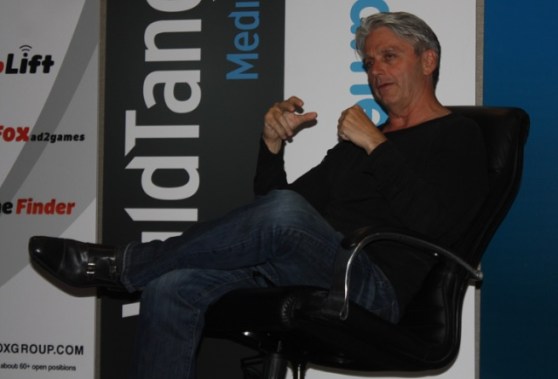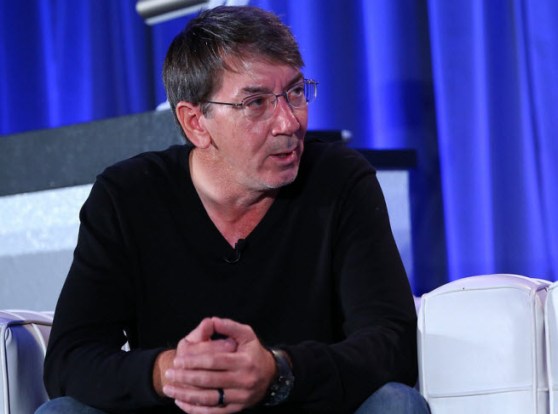6. The MOBA market will have a shakeout
The multiplayer online battle arena (MOBA) game League of Legends created a whole new genre and built a company, Riot Games, with more than 1,000 people. LoL has fueled the eSports craze and helped free-to-play take off in Western countries. And it has fueled the rise of livestreaming on Twitch, the popular game video broadcasting service.
But League of Legend is getting a lot of competition from Valve’s Dota 2 and will face more from Blizzard’s upcoming Heroes of the Storm. But it remains to be seen if MOBA can support more than one company. The copycat competitors are assuming that it will be an entire market behind the MOBA craze. But if it’s a fad or a one-hit market, there will be a lot of dead bodies on the floor.
The MOBA market may very well be a winner-take-all market, or close to it. That’s because of the strong network effects that happen when a community or eSports fans get behind a title and stay with it.
7. Europe and Asia will stay ahead of the U.S. in mobile games
This trend has already happened, with the rise of games like Candy Crush Saga, Clash of Clans, and Puzzle & Dragons. But the signs are strong that the Europeans and Asians will capitalize on their success and use it to move in the U.S. market in a big way.
Companies like Supercell, GungHo Entertainment, and King are raising big piles of capital based on valuations that are at historic highs. They have cracked the nut for monetizing mobile games, and that is a big deal because there are a billion mobile devices.
Meanwhile, U.S. rivals such as Zynga have stalled. And some companies, like Epic Games (maker of the Infinity Blade series) have already sold chunks of their companies to Asian investors such as Tencent. You can expect the Europeans and Asians to go shopping among their lesser-valued U.S. rivals. In Asia alone, there are 30 companies that have more than $1 billion in cash and have a history of buying game companies.
The U.S. is strong in consoles, with big companies like Activision Blizzard, Electronic Arts, and Take-Two Interactive. But here’s an interesting fact. Even after the huge success of Grand Theft Auto V, which generated $1 billion in sales in its first three days, parent company Take-Two Interactive is valued at $1.56 billion, as of today’s stock market price. By contrast, Supercell is valued at $3 billion.
But the Europeans and Asians shouldn’t get too confident. Indie successes can come from anywhere.
8. Rising user acquisition costs will bring victory to the brands
The cost of acquiring a new user has risen to crazy levels. We know that because market researchers such as SuperData have found that the cost per install (CPI, which is the measure of what it costs in advertising to get a user) had risen to $2.73 for mobile games as of October. And SuperData found that the average revenue per user was $1.96. With the holidays, competition was expected to drive the cost of user acquisition even higher. And that means there will be a bloodbath with many mobile game developers spending more for users than they bring in from those users.
The well-known brands and viral mobile hits can get more users without spending a lot. The unknowns will get squeezed in this kind of market. And if Disney comes in with a massive brand, it will be hard to overcome that brand, no matter how much you spend. Former EA chief executive John Riccitiello predicted the inevitable rise of brands in mobile in a recent talk.
But it pays to remember. The “brands” aren’t necessarily traditional brands. They can come from anywhere, in part because mobile hits beget new mobile brands among users who are spending all of their time with mobile devices. Disney recognized this, using the Temple Run brand in mobile to launch some successful endless runner games such as Temple Run: Brave and Temple Run: Oz.
Another important thing for the platform owners: platform owners can push around game developers when they’re small. But when those developers create huge brands, the power shifts. Consumers won’t allow a platform owner to push around brands that they love. Apple, for instance, competes with Netflix, but it tolerates Netflix’s presence on iOS devices because consumers want it.
This doesn’t assure brands of victories in 2014. But the momentum of the market is in their favor.
9. Narrative will matter in games for all platforms
If there’s a lesson from my picks for the top games of 2013, it is that a strong story matters. The Last of Us, BioShock Infinite, and even Grand Theft Auto V had strong narrative threads that tied the gamers to the games for long hours. With consoles games, the platform was stable for seven years and that allowed developers to pour their energy into the craftsmanship of making a game, rather than learning a new technology. The result was a bunch of wonderful games with memorable scenes and strong endings.
The makers of online games and mobile games should also learn this lesson. Telltale has learned how to tell great stories in bite-sized episodes, much the same way that TV shows do. They put the cliffhangers at the end so that players can’t wait for the next episode. Remedy Entertainment is pursuing the same strategy with its Quantum Break game, which will be accompanied by a TV show. With the next-generation consoles, the opportunity to build engaging games is even bigger, and the technology isn’t as hard to wrestle with at the outset.
I’m not saying games should be more movie-like. But game developers will use their medium to tell memorable stories in their own way. I think that mobile game developers should pay attention to narrative too. Their platforms are younger, but they are becoming more capable. And narrative is still a great way to distinguish your game from somebody else’s.
10. Personal gaming will thrive
The combination of a treasure trove of data about users and the ability to create different versions of a game for different users means that game developers will be able to create personalized games for just one person. These kinds of games are possible given the kind of data that mobile devices and online sites can collect about users.
We’ve seen that purely data-driven games aren’t by themselves going to be successful. Personal gaming will likely require a balance of smart game design and big data analysis to deliver games that are much more addictive than anything we’ve seen to date.
Will Wright, the founder of the game startup Syntertainment, has hinted that personal gaming will be the wave of the future. He sees these kinds of games as blending reality, entertainment, and mobile location services. 2014 might show us some of the early successes in where this category can go. But in the long term, the encouraging thing is that indies, such as Wright’s new company, might very well use this targeting technology to deliver games that outdo the blockbusters, which try to target a single mass market.
But the usual warning remains. Keep sacred the user’s wish for privacy, or all else fails.
And please take our poll about which prediction is your favorite, and leave a comment explaining your choice below. Or use the comments to make your own predictions.
VentureBeat's mission is to be a digital town square for technical decision-makers to gain knowledge about transformative enterprise technology and transact. Learn More












![Reblog this post [with Zemanta]](http://img.zemanta.com/reblog_e.png?x-id=6098efd0-976c-4412-a489-29bd223f0dc7)
